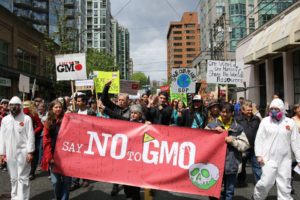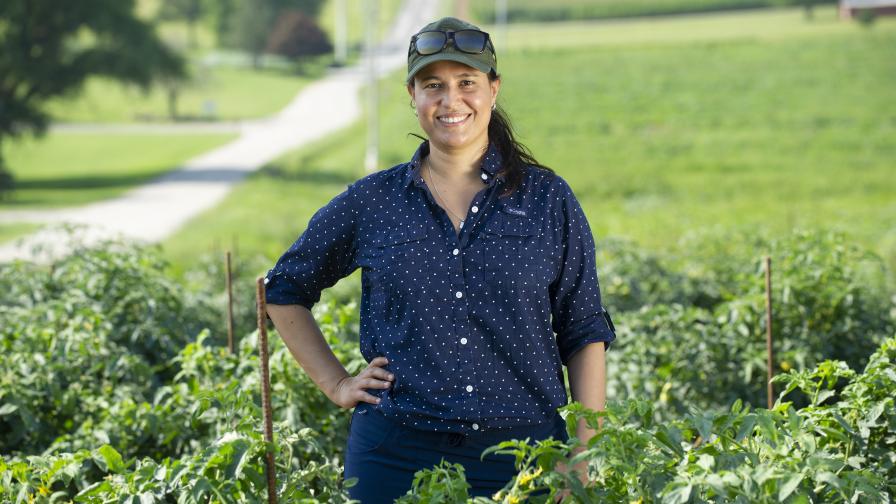Consumers Don’t Really Know What GMO Means, New Study Finds
 Although most growers prefer food policy be based purely on science, those who make food policy must contend with public opinion. And few issues unite public opinion like genetically modified (GM) plant and organisms.
Although most growers prefer food policy be based purely on science, those who make food policy must contend with public opinion. And few issues unite public opinion like genetically modified (GM) plant and organisms.
Two researchers, Brandon McFadden, an assistant professor of food and resource economics at the University of Florida Institute of Food and Agricultural Sciences, and Jayson Lusk, an agricultural economics professor at Oklahoma State University, wanted to delve into how much the public understands about the GM food, as well as how their opinions might change when presented with new information. Their study has been published in Federation Of American Societies For Experimental Biology Journal.
The two surveyed 1,004 Americans who were demographically typical of the overall U.S. mix of race, education, and income. They placed questions about their knowledge and views of GM food near the beginning of the survey, and again near the end. In between, the two asked questions about GM food and current practices. For example, the two asked if conventionally grown crops can be sprayed with herbicides, with a follow up question asking if GM crops can be.
Most of these scientific questions were simple. The pair asked what percentage of common crops like wheat and corn grown in the U.S. are GM plants, and if there currently any GM animals on the market.
What they learned is that, after participants went through the list of basic questions about GM food, there was a noticeable shift in attitude.
“People who ‘disagreed’ and people who ‘strongly agreed’ that GM food is safe to eat before answering questions both thought that GM food was more safe after answering questions,” says McFadden.
Specifically, those who either “disagreed strongly” or “disagreed” that GM food was safe to eat shifted from 33.7% before answering questions about GM food and policies changed to 29.8% after the questions.
The survey was made up of neutrally phrased questions. There were no paragraphs explaining GM techniques or policies.
“We did something similar — asking a belief question before and after information — with information from the scientific community, and asking knowledge questions is more effective in changing beliefs than providing information from the scientific community,” McFadden says.
Other Findings From The Study
The study revealed several other intriguing facts:
- 84% support mandatory labeling for GM food. However, 80% support similar labeling for food containing DNA. That said, only 33.5% thought ordinary tomatoes lack genes while GM tomatoes have them.
- 64.6% believe experts should set food policy, not average Americans.
- “Our research indicates that the term ‘GM’ may imply to consumers that genetic modification alters the genetic structure of an organism, while other breeding techniques do not,” McFadden said.
- 58% believe the U.S. Food and Drug Administration should decide if mandatory labeling. Survey participants were offered five choices in all plus “I don’t know.” Those choices included both national and state level ballot initiatives and legislative bodies.








